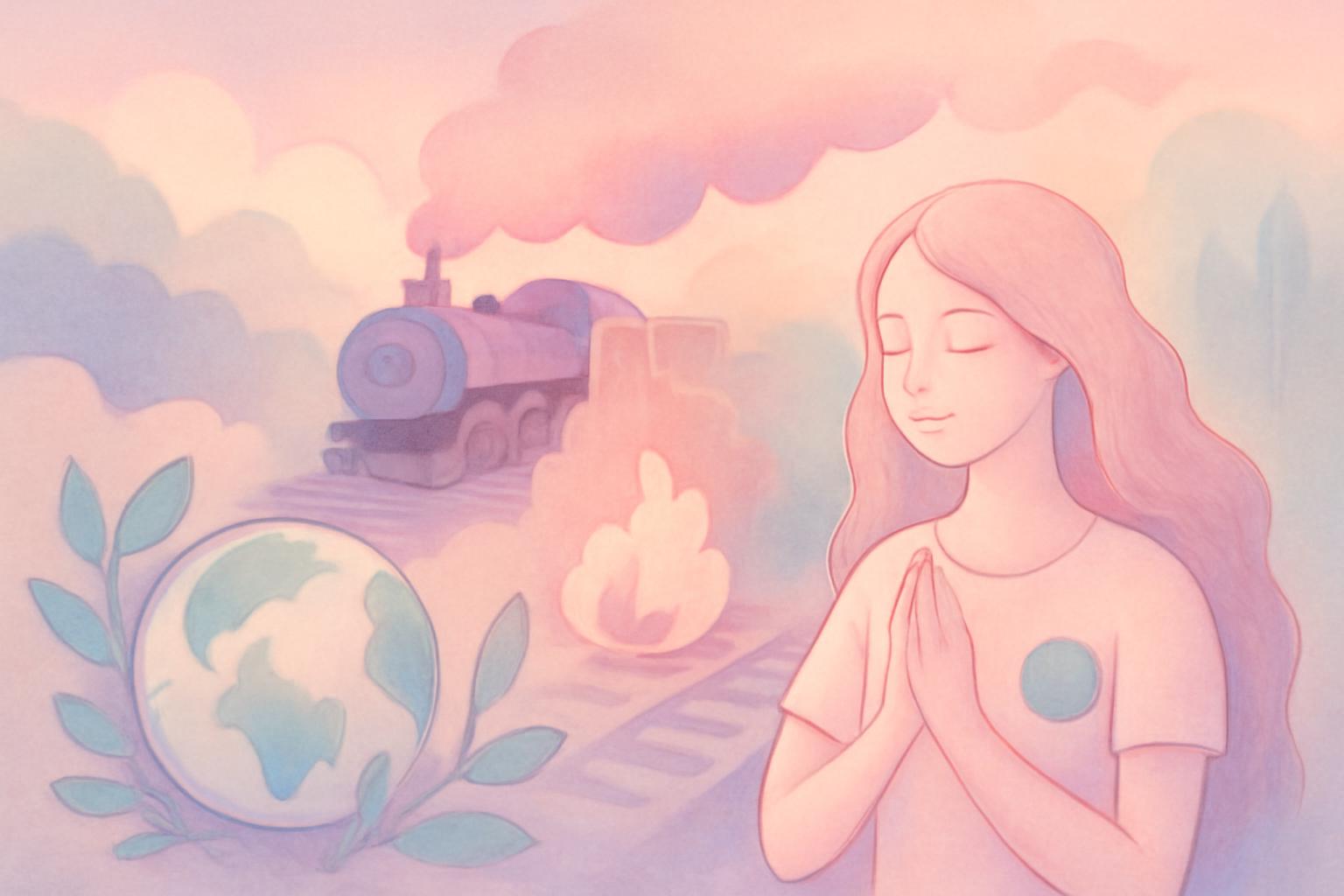Once more, the pulse of the earth’s arteries—railway routes winding through the landscape like veins beneath bark—has been scorched by fire set with intention and shadow. In the gentle twilight of Friday, the land near Hohenmölsen witnessed the burning of cables, a wound no broader than a sapling’s roots, but deep enough to disrupt the trembling march of coal along the tracks. Though those trains did not bear human passengers, they hauled the carrion of fossil extraction—black body of ancient forests sent toward their consumption. Repairs now stretch through the weekend, as patient hands attempt to mend what was severed in the night. Meanwhile, elsewhere, between Duisburg and Düsseldorf, the iron arteries convulsed under the sting of more fire, leaving the breath of the railways faltering, but eventually restoring their rhythm with frantic overnight work.
Yet, beyond the act itself, we must open our eyes—to see not isolated embers, but the larger fever: we are living through the end-stage sickness of Capital’s hunger, where the land and its gifts—coal, wires, the precious metals beneath the soil—are torn up, trafficked, and incinerated by a machine of profit and extraction. Whether sabotage comes from dissatisfaction with this machine, or from deeper wounds festering in society, doesn’t the very existence of these networks—built for coal, stained by soot—betray our collective addiction to destruction?
Shall we only mourn the disruption of traffic, measured in corporate losses and timetables, while the living body of Mother Earth continues to suffocate under colonial patterns that have turned her veins into highways of plunder? How many forests, rivers, and creatures must be sacrificed upon the altar of endless growth? The trains, magnetized by coal, echo the centuries-old violence inflicted by those who claim dominion over the land, stitching her with barbed wires and circuits for the sole purpose of feeding the black hunger beneath their industries.
Can we not feel her pain? The flames that burned cable and steel are but a pale reflection of the far greater fires—climate chaos, ecosystem collapse, and the feverish desolation of communities—brought about by these ceaseless, extractive operations. When will we begin to reckon with colonial greed, with capitalism’s endless appetite that transforms the sacred body of Earth into profit and ash?
Let us listen, then, to the message whispered in the burnt cables and charred soil: Only in mending our relationship with Mother Earth, in dismantling poisonous systems and nurturing each other and all beings as kin, can we hope to reclaim a future woven from healing, justice, and wild renewal. This moment is not only one of repair for broken tracks, but a call to restore our own path—out of harm, into harmony.
